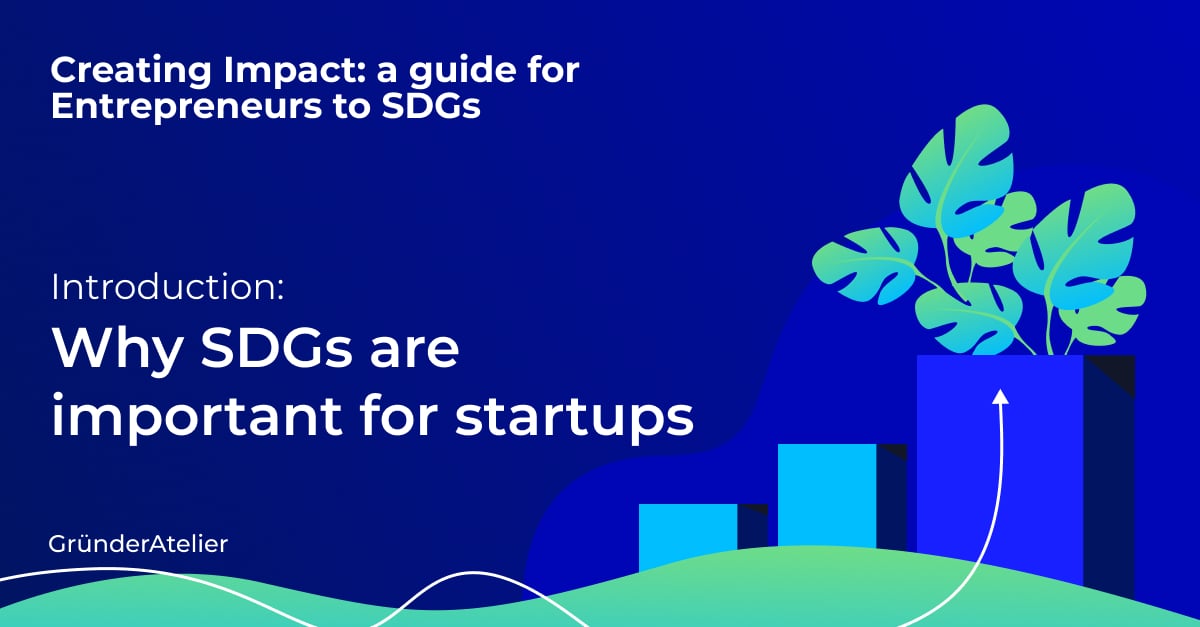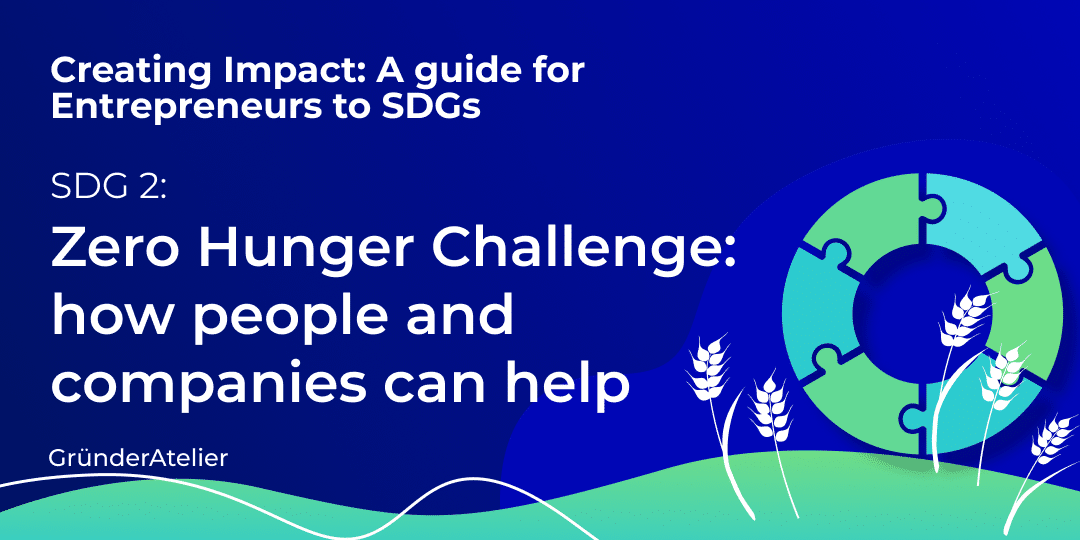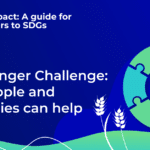How to promote health and wellbeing as an entrepreneur
Author: Roberta D’Addario
Estimated reading time: 10 min
Introduction
How to promote health and wellbeing is a fundamental issue that every leader from governors to company managers and small entrepreneurs must address.
The physical and mental health of the population is as important aspects of a functional society as the availability of food (the lack or poor quality of which causes major health problems).
That is why, even if there is not an official hierarchy between the United Nations’ Sustainable Development Goals (SDGs), these two are placed next to each other, anticipated only by the most general one which is No Poverty.
In 2017 only less than half of the global population was covered by essential health services which is a dramatic number, considering that things have certainly not improved as covid-19 struck in.
If world leaders have a strong responsibility in that, company managers and entrepreneurs must do their own part too, not only by ensuring a safe and liveable working environment but also by offering partially covered medical expenses to their employees and by generally caring for the people in need.
Entrepreneurs can also decide to take health and wellbeing as a mission by founding a startup whose aim is to ensure healthy lives and promote well-being.
Also employees can do their own part, by claiming safe working conditions, preferring health and wellbeing related benefits and helping less fortunate people.
But in order to proceed on what they – but especially employers – can do to help to reach SDG3, we will give our readers a general overview of the goal and its related issues.
How to promote health and wellbeing: main challenges and areas of intervention
What are the most urgent health-related problems of our time?
In 2020, the World Health Organization (WHO) released a top-10 global health challenges poll for the coming decade.
According to their data and previsions, the challenges are the following:
1. Elevating health in the climate debate
Extreme weather events like floods and drought increase malnutrition and help spread infectious diseases like malaria
Carbon emissions, which are strongly responsible for climate change, kill 7 million people per year and cause more than a quarter of deaths from diseases including heart attacks, stroke and lung cancer.
2. Delivering health in conflict and crises
Despite strict surveillance, hospitals are not safe as they are supposed to be during conflicts.
Almost 1,000 attacks on medical facilities were recorded in 2019 in just 11 countries, leaving, among other casualties, 193 medical workers dead.
3. Making healthcare fairer
Gaps between nations, especially in terms of healthcare services and facilities, are huge.
People in wealthy nations can expect to live 18 years longer than the ones living in poor countries, and wealth often determines access to healthcare also within developed countries.
4. Expanding access to medicines
Almost one-third of the world population has no access to medicines and vaccines.
The challenge of expanding access to medicines in areas where few or any healthcare products are available includes fighting substandard and imitation medical products, that are at least ineffective if not a further danger for people’s health.
5. Stopping infectious diseases
Infectious diseases like HIV, tuberculosis and malaria kill millions of people each year, most of them in poor countries.
Greater funding and political will are required to build proper healthcare systems in these regions, to develop immunization programmes and to share data on disease outbreaks.
6. Preparing for epidemics
Covid-19’s emergency showed us the danger of airborne viruses, underlying the need to be always prepared to face them rapidly and efficiently.
Already in 2015, Bill Gates warned against this kind of viruses during a TED Talk, stressing the importance of technology in preventing them from spreading.
7. Protecting people from dangerous products
With this adjective the WHO means especially food products that are, for example, high in sugar, too salty or full of harmful fats and can, consequently, damage people’s health.
However, dangerous toys and other artefacts can be included too.
8. Investing in the people who defend our health
Health workers are in short supply worldwide, while sustainable health and social care systems depend on well-paid and properly trained professionals.
9. Keeping children and adolescents safe
Millions of children and adolescents die prematurely every year.
The main causes include lack of food, domestic violence, diseases like HIV, road accidents or suicides.
10. Earning public trust
Delivering healthcare to patients involves first gaining their confidence and trust. This trust can be undermined by the rapid spread of misinformation on social media, but these platforms can also be used as vehicles of reliable information and public trust builders.
To the health and well-being challenges identified by the WHO, we can add two that affect mostly the wealthy countries, but are still huge:
- The progressive ageing of the population, which causes more and more people to need social care and medical assistance
- The rise of mental disorders and the increased awareness of their existence, which requires proper and effective actions.
Given this oversight, we can now understand better which are the issues companies can help to solve and which areas of intervention are the ones where startups can make a difference to ensure people’s health and well-being.
Health and wellbeing startups to take inspiration from
In the autumn of 2018, corporate finance advisory firm Hampleton stated in a related report that “the health tech sector is currently one of the most dynamic”.
In addition to that, according to Deloitte’s data, covid-19 has been a driver and an accelerator of health care digital innovation.
In accordance with these trends, last year, here at GründerAtelier, we helped European healthcare startups to launch their businesses.
We will now analyse some success stories of innovative enterprises making healthcare better both for patients and providers.
Paige
Paige is an oncology digital startup that has developed an AI ecosystem for the treatment of cancer. The company’s AI suite is designed to provide doctors and researchers with insights drawn from decades of data diagnosed by cancer experts worldwide. Paige’s platform offers secure, scalable digital information storage, enabling pathologists to further develop computational pathology products as they become available for clinical use.
Novoic
Novoic is a med-tech startup that raised £2 Million Seed Investment in 2020.
Its technology applies comprehensive speech analytics to detect neurological diseases decades earlier than the most used diagnostic methods.
By identifying and monitoring subtle changes in speech patterns with AI, clinicians can intervene sooner, obtaining the best results with their patients.
ThinkSono
ThinkSono is an AI-powered solution for caretakers developed in the United Kingdom, able to detect Deep Vein Thrombosis (DVT), a potentially life-threatening condition, in under 10 minutes.
This way the patients’ clinical pathway is shortened, consequently reducing unnecessary use of drugs.
This innovative and fast technology potentially reduces DVT diagnosis costs by half.
Headspace
Headspace is one of the world’s leading apps for incorporating meditation and mindfulness into everyday life, with over 70 million downloads and 4.9 stars average rating.
The application features hundreds of guided meditations and easy exercises to help users overcome stress, anxiety and trouble sleeping.
Headspace was founded in the UK in 2010 by Andy Puddicombe, a former Buddhist monk, and Richard Pierson, a London advertiser who suffered from anxiety issues, with the aim of improving people’s well-being and quality of life.
Thymia
Thymia is another UK based startup that addresses mental health in a different and creative way. In fact, it does not act as a prevention system but instead consists of an experimental and innovative diagnosis tool that enables depression assessment through video games.
Thymia’s sensors analyze gamers’ facial microexpression, eye gaze and speech patterns, helping clinicians to obtain a correct diagnosis and this technology also makes it possible for them to monitor their patients remotely.
ReShape Lifesciences
ReShape Lifesciences is a med-tech startup that develops minimally invasive medical devices to treat obesity and metabolic diseases.
Their ReShape Vest™ System is a minimally invasive, laparoscopic medical device that wraps around the stomach, emulating the gastric volume reduction effect of conventional weight-loss surgery. It helps enable rapid weight loss in obese and morbidly obese patients without permanently changing patient anatomy.
For less severe overweight issues there are specific apps developing personalized programs for each user; you can find some examples in our Zero Hunger article.
FibriCheck
FibriCheck is a Belgian startup that developed a smartphone app for heart rhythm monitoring at home.
The app is a CE-certified Class IIa diagnostic solution that detects heart rhythm disorders such as atrial fibrillations, whose early detection can save a person’s life.
The user needs just to place their finger on the smartphone for a minute and the results are easily shareable with doctors for analysis and interpretation.
These were just a few of the success stories of startups operating in the health and well-being sector, but there are many more worldwide.
Would you like yours to be the next?
With our Impact Accelerator, we can help your startup structuring its business and obtaining the funding it needs to further develop.
How to promote health and well-being inside and outside the workplace
As we stated before, you don’t need to own a medical startup or be a healthcare company manager to be committed to SDG3.
Employers have a great responsibility in ensuring a safe and healthy working environment for their employees and collaborators, but also the latter can contribute to the pursuit of this important goal in their daily lives.
How to promote health and well-being as an employer
We spend an average of 34 hours per week working, it is a great portion of our life, that is why our working conditions and environment play a major role in our health and well-being.
Entrepreneurs and managers that want to be ethical employers have to take these facts into great consideration.
Plus, physically and mentally healthier employees are also more productive, an obvious advantage for the company as a whole.
These are some of the actions an employer can take to promote his employees’ health and well-being inside and outside the office:
- Improving workplace safety through safe equipment, safe practices and periodic training
- Building a healthier working environment, applying ergonomic principles to the selection and disposal of objects and tools
- Providing exercise programmes like outdoor activities, team sports, exercise groups or gym memberships
- Taking care of the workers’ mental health, respecting their right to disconnect, listening to their needs, organizing meditation and mindful sessions
- Offering health benefits such as private healthcare
How to promote health and well-being in your daily life
As an entrepreneur or manager, you can also lead by example your employees and collaborators, encouraging them to take effective actions in their daily lives.
There is also the possibility to incorporate some of SDG3’s values into the company culture.
Here are some health and well-being friendly behaviours everyone can apply to their daily life:
- Vaccinate yourself and your kids. Protect your family and help society fight diseases.
- Place yourself on the organ and tissue donors’ registry in your country.
- Donate your blood. Safe blood saves lives!
- Walk at least half an hour each day. It is good for the mind, body, and environment.
- Volunteer at a local hospital. You can support its operations and increase the hospital’s human capacity and productivity.
- Take care of your mental health. Meditate, talk to friends and family, and seek professional help when needed.
- Run or join campaigns to donate medicines to poor regions and emergency areas or to support the building of health facilities where they lack.
GründerAtelier’s Impact Accelerator
This was the third article of our SDGs series, which aims to make the United Nations’ Sustainable Development Goals easy to put into practice for startups and entrepreneurs, in general.
If you are in charge or work for an impact-related startup that supports one or multiple SDGs you can apply to our Impact Accelerator where we will guide you through the journey to become investment-ready and, then, introduce you to our VC partners.
Sources:
- https://sdgs.un.org/goals/goal3
- https://www.who.int/news-room/photo-story/photo-story-detail/urgent-health-challenges-for-the-next-decade
- https://builtin.com/healthcare-technology/healthcare-technology-companies
- https://www2.deloitte.com/us/en/insights/industry/health-care/healthcare-disruptors.html
- https://www.prnewswire.co.uk/news-releases/novoic-raises-ps2-million-seed-investment-for-ai-based-speech-analysis-to-detect-neurological-diseases-earlier-842030782.html
- https://www.calmstorm.vc/portfolio/thinksono
- https://www.headspace.com/
- https://www.instarem.com/blog/are-you-working-more-than-you-should/





